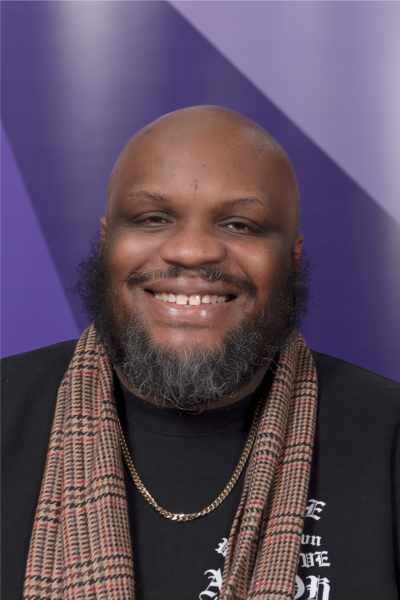Former Bears quarterback Justin Fields’ biggest supporters — Black people — are balancing reality with what could have been.
By Evan F. Moore, For The Chicago Defender
Black folks being recognized for their achievements — or as it’s called these days, “given their flowers” — over time has become historically fraught with anger and regret.
Recently, I saw a film called “Beyond Their Years,” which featured the life-long pursuit of two Black men who wanted to be recognized for their achievements: Buck O’Neil, former Negro League baseball player and Cubs scout, and Herb Carnegie, widely known as the best hockey player to never play in the National Hockey League. Both men wanted to play in the best league their sports had to offer. Both men, who simply wanted to be recognized for the work they put in, were posthumously inducted by the National Baseball Hall of Fame and the Hockey Hall of Fame, respectively, in 2022.
Wendy Lewis, an executive producer of the film, said O’Neil may have died of a broken heart.

Evan F. Moore
Bears history outside of the Super Bowl XX victory over the New England Patriots (I was in first grade at the time), along with memories provided by franchise icons Dick Butkus, Gale Sayers, Mike Ditka, Walter Payton, Brian Urlacher and Devin Hester, along with many others whose individual legends surpassed their on-field exploits, is filled with losing, frugal behavior, racism and unfulfilled expectations.
Team history shows a glaring lack of consistent play at the quarterback position. I won’t regale you with the names of the quarterbacks since national pundits often find new and creative ways to curate fan misery. Also, the residual effects of losing created a generation of Chicagoans who root for the rival Green Bay Packers, a team that has been much more competitive than the Bears. The Bears have brought in Black quarterbacks before via free agency. Vince Evans, Henry Burris, Kordell Stewart and P.J. Walker (signed and released before the start of the 2023 season).
And, perhaps more importantly, the Black segment of Bears fandom rooted for Fields while taking a lot of the unfair criticism of him to heart.
Why?
Because whether we’re on the field, in the newsroom, at the General Assembly, on a Zoom call, at a U.S. House of Representatives hearing, in the classroom or boardroom, Black folks know all too well the feeling when our job performance is belittled, magnified and bear the brunt of the blame for things that may or may not have transpired on their watch. Meanwhile, someone else comes in and capitalizes on the work they started.
The team went through ebbs and flows during Fields’ tenure as QB1.
Media pundits, local and national, propped up backup quarterback Tyson Bagent, who was rendered ineffective once the league figured him out in the same way James “The Grim Reaper” Roper handled “Irish” Terry Conklin in the 1996 film, “The Great White Hype.”
Black folks have seen this film, and many like it, but it doesn’t end well. They saw yet another Black man asked to do the impossible while not being given the tools — i.e., a strong offensive line and receivers who catch passes — to succeed.
Mentioning the systemic circumstances that led to his downfall doesn’t mean Fields was not at fault for how the season turned out. Fields’ play — no matter the hand he was dealt — was up and down.
Both instances are true.
Speaking of acceptance and wanting to be recognized, in the fall of 2022, I was interviewed in South Shore for City Cast Chicago, a podcast highlighting local news regarding their “Neighborhood Guide” series. Toward the end of the interview, as I discussed what it was like to see the book I coauthored in the Chicago Public Library branch of my youth that I now take my own child to, I started crying.
The acceptance I had long yearned for from the neighborhood and the people who watched me grow into an award-winning journalist and author overwhelmed me at a time I didn’t expect. After all, it hits different when the people who look like you are actively rooting for your success and holding you down during the failures.
Bears fans knew that Ryan Poles, a Black man and the team’s general manager, was most likely wanting a quarterback of his own choosing. After all, he’s charged with “Taking back the North [division],” as he once put it. That means making tough decisions that may temporarily upset the fanbase. From most accounts, Poles put Fields in the best situation he could excel in.
As the folks in South Shore accepted me as one of their own, many Bears fans accepted Justin Fields, as we heard them at Soldier Field after the team’s season finale.
Some of them will become part-time Steelers fans now.
I’m sure that Justin Fields is okay with that. Even though he did not win over the Bears, he convinced the fanbase that he belonged.
Evan F. Moore is a South Side Chicago-based writer. He’s the co-author of the critically-acclaimed book, “Game Misconduct: Hockey’s Toxic Culture and How to Fix It.” His work over time, which consists of the topics at the intersection of sports, race, entertainment and culture, is featured in the Chicago Sun-Times, Rolling Stone, Chicago Magazine, South Side Weekly, Bleacher Report, Chicago Reader, and ESPN’s Andscape (formerly The Undefeated). His writing, which has garnered several awards, was featured in the 2019 edition of The Best American Sports Writing book series. Evan is an adjunct community journalism professor at DePaul University.